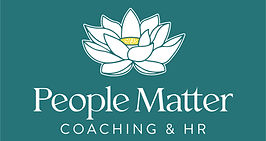It’s time to think about performance management differently
- Desleigh White
- Nov 1, 2025
- 3 min read
Once upon a time, Jack Welch and GE used a performance ranking system that meant the bottom 10% of performers were regularly removed from the company. This was widely reported, written about, and even lauded by many.
But let’s call it what it really was: people were fired for being in that bottom 10%.
People have said different things about the system, that it motivated people to perform, that it was meritocratic, and so on. I didn’t work there and haven’t experienced it firsthand, so my understanding is based on what I’ve read and the people I’ve talked with.
Personally, I’m glad to see there’s less focus on that harsh style of performance management these days, at least overtly.
To me that approach misses something important. account for people’s different life experiences, backgrounds, or the nuances that impact performance. Performance isn’t something that fits neatly into one box, not even when there is nine of them! It's more complex, multifaceted. I recently created an image to reflect that nuance.

I think of it as a practical, human-centred way to think about performance, moving us away from binary labels like “good” or “poor”. It’s inspired by insights from Gallup’s work on engagement and performance, McKinsey’s thinking on talent segmentation, and adaptive leadership principles.
This model helps us focus and target development and feedback across that full spectrum. When we pause and consider performance, we can get curious, listen to understand and think in terms of growth and potential rather than judgment. We have better conversations generally and it helps us to have more consistent performance conversations.
When we’re thriving, we’re consistently exceeding expectations. People might see us as being energised, proactive. Someone who seeks feedback and drives continuous improvement.
If we’re progressing we’re growing and meeting most expectations. We might be focused on learning, open to feedback, and asking a lot of questions.
Sometimes we might be coasting, meeting minimum expectations (or maybe more) but bored or stagnant. We might see low energy levels, someone doing what needs to be done but avoiding taking initiative, or they might be disengaged or under-challenged.
Other times people might be struggling, simply not consistently meeting expectations. At different times they might need different things. Early in the role, perhaps they need direction and support. If they’re struggling and lacking follow through or perhaps resistant to feedback, they need different things. Perhaps this is when we lean into Brene Brown’s ‘Clear is kind. Unclear is unkind’ thinking and consider how we need to communicate better or differently.
People need different things at each point:
When thriving, they might seek recognition, autonomy, or stretch opportunities.
Someone progressing might benefit from coaching, clarity, and encouragement.
A person coasting might need more connection, re-engagement with purpose, or a conversation about expectations.
If struggling, they may need clarity, support, and accountability
These descriptions aren’t meant to be rigid or definitive; they’re designed to be prompts to get us thinking critically.
What leadership approach does this person need from me?
What style of communication do they prefer?
What might be happening beneath the surface, under the waterline on the proverbial iceberg?
What are their strengths, and are they being given opportunities to use them at work?
What am I doing, sharing, or communicating to inspire this person to do their best work?
Think back to times when you have been in the different parts of the performance continuum, because we’ve all been there – in every single one.
We’re in the struggle section when we first join a new organisation. We coast when we’ve got a lot to deal with outside of work. Progress as we find our feet in a task or role and thrive when we are nailing our work.
How could you lean into your experiences at every level and provide the support and guidance to help people move into thriving at work? What are the systems that you could change or help them navigate?




Comments